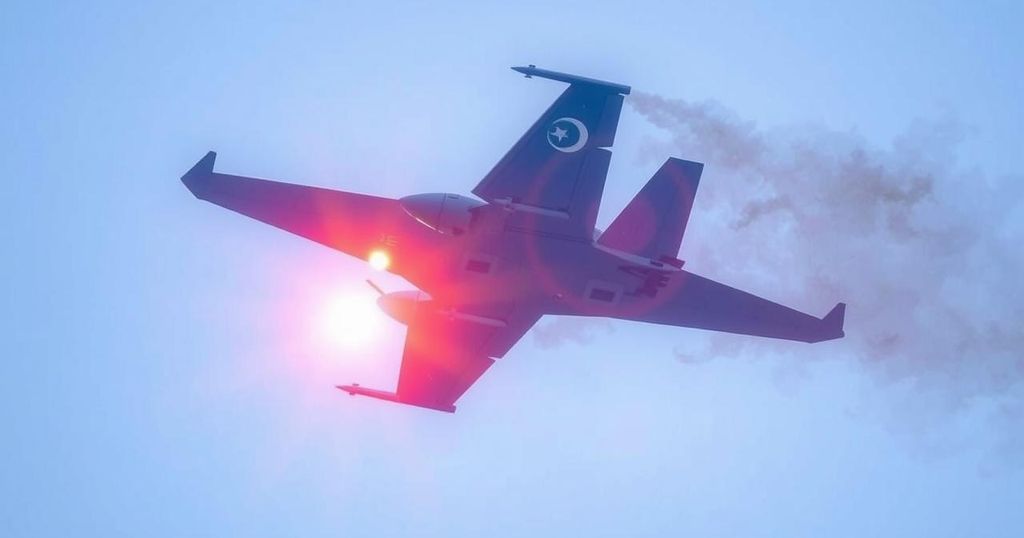Investigation Underway into Azerbaijani Plane Crash Linked to Russian Missile

A potential Russian missile strike is suspected in the crash of an Azerbaijani passenger jet that resulted in 38 fatalities. Investigations are ongoing as claims emerge regarding the involvement of Russian air defense systems. Eyewitness accounts describe shrapnel damage, reminiscent of past incidents involving military conflicts. Azerbaijani President declared a day of mourning as the country seeks clarification over the incident, while the Kremlin urges caution against premature conclusions.
Recent reports indicate that a Russian surface-to-air missile is suspected to have caused the crash of an Azerbaijani passenger aircraft, which tragically occurred near Aktau, Kazakhstan. Azerbaijani and U.S. officials have begun investigations into the incident, which resulted in the deaths of 38 out of the 67 individuals on board. Initial investigations suggest the Embraer 190 aircraft deviated from its intended route, and eyewitness accounts describe shrapnel damage consistent with missile strikes.
The flight, which was en route from Baku to Grozny, diverted unexpectedly, leading to speculation regarding a possible attack. U.S. authorities and aviation experts postulated that the aircraft might have been mistakenly targeted by Russian defense systems, due in part to the ongoing conflict in Ukraine. In response to these developments, the Kremlin has advised against forming any conclusions before a thorough investigation takes place, emphasizing the need for factual evidence.
Kazakh officials have confirmed that two black box recorders have been retrieved from the crash site, which will provide crucial data for the investigation. The Azerbaijani government initially attributed the crash to a bird strike, but this assertion was subsequently retracted. The tragic incident prompted Azerbaijan’s President Ilham Aliyev to declare a day of mourning in remembrance of those lost. Survivors recalled the harrowing experience, describing the scene of chaos and fear immediately following the crash.
This calamity highlights the ongoing tensions in the region and raises questions regarding air traffic safety amid military conflicts. As investigations progress, the international community is closely monitoring the situation, particularly given the historical context of similar incidents, such as the downing of Malaysia Airlines Flight MH17 in Ukraine in 2014, which exacerbated relations between Russia and the West.
The incident involving the Azerbaijani Airlines jet has drawn international attention due to its potential implications regarding air safety in conflict regions. It is not unprecedented for civilian aircraft to be intertwined with military actions, as seen in the 2014 downing of Malaysia Airlines Flight MH17. The ongoing military engagements in Ukraine and the surrounding territories have led to heightened concerns regarding the safety of air travel, particularly in areas where military defense systems are active. As investigations continue, the international community is keeping a watchful eye on the findings and their implications for international air travel and military accountability.
In summary, the crash of the Azerbaijani passenger jet near Aktau raises critical questions regarding the safety and security of flights in conflict zones. With evidence suggesting potential involvement of Russian missile systems, the situation necessitates a comprehensive investigation to ascertain the facts surrounding the disaster. Simultaneously, it underscores the necessity for maintaining strict protocols to safeguard civilian aviation amidst ongoing regional tensions. As the situation unfolds, the tragic loss of life serves as a somber reminder of the complexities and dangers inherent in contemporary air travel.
Original Source: www.wfxg.com







